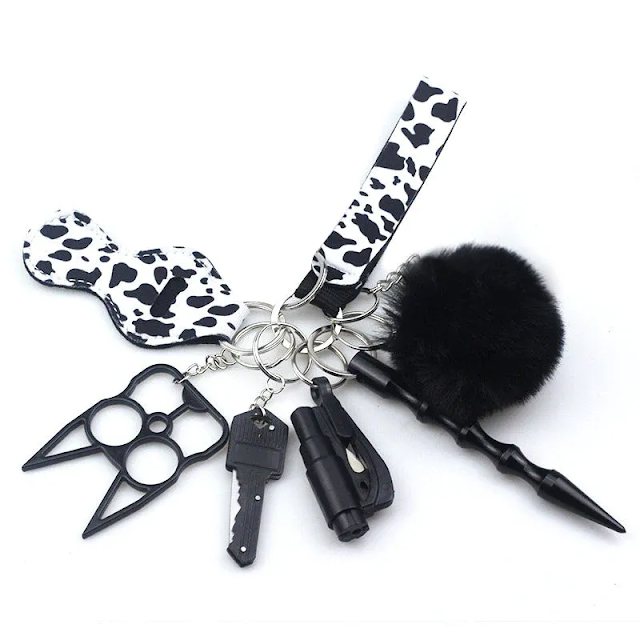Disclaimer: The information provided in this article and on this website is for general informational purposes only and does not constitute legal advice. Visitors of this website should contact their attorney for advice on any particular legal matter.

Self-Defense Keychains Overview: Self-defense keychains are popular for their convenience, affordability, and effectiveness. They are generally legal to purchase, own, and carry in the U.S., subject to the laws and restrictions of specific jurisdictions.
The legality of self-defense keychains varies widely by state, city, town, or village. This is because the definition of a "deadly weapon" can differ from state to state, and some keychains may be classified as such. Therefore, it's important to understand the specific laws that apply to your location before purchasing or carrying a self-defense keychain.
For instance, cat self-defense keychains are not legal in all states. While they may seem like a simple solution for personal safety, using them in such a way could result in legal consequences.
The legality of a self-defense keychain also depends on its design. Some keychains, like those that look like brass knuckles, can be classified as deadly weapons and are therefore illegal in certain states, such as California.
Another example is the kitty knuckles, which are made of resin or alloy metal and designed to slip over the knuckles with the cat ears pointing outwards. These keychains are considered a deadly weapon in many states, making them either illegal or regulated.
However, some self-defense keychains are universally legal. For example, safety alarm keychains are legal in all 50 states in the United States because they are non-lethal and only emit a loud noise, which is a non-offensive and contactless way to defend yourself.
In conclusion, the legality of self-defense keychains varies by jurisdiction, and it's crucial to check the laws in your specific location before purchasing or carrying one. If you're unsure, it's advisable to consult with a lawyer or local law enforcement officer.
Legality of Specific Self-Defense Keychains:
Self-Defense Flashlight Keychains:
- Legal in all 50 states.
- Commonly used household device with secondary uses for self-defense.
Self-Defense Alarm Keychains:
- Legal in all 50 states.
- Non-lethal, emitting a loud noise as a deterrent.
Self-Defense Whistles:
- Legal in all 50 states.
- Function similarly to alarms, using sound to deter aggressors.
Self-Defense Kubatons:
- Legal in all 50 states, but with some restrictions.
- Their form resembles everyday objects, making them generally legal.
Self-Defense Pepper Spray Keychains:
- Legal in all 50 states.
- Restrictions on age, size, and potency vary by state.
- Specific state restrictions, e.g., New York prohibits shipping, California and Wisconsin have size and potency limits.
Self-Defense Knife Keychains:
- Generally legal, but with restrictions on blade length, type, and carry method.
- Legality varies by state, with specific length limits and types of permissible knives.
Self-Defense Cat Ears Keychains:
- Legal in 12 states.
- Legal with a license in 17 states.
- Prohibited in 21 states.
- Often classified under brass knuckles, leading to varied legality across states.
Conclusion: While the United States has generally generous laws regarding self-defense keychains, there is significant variation in legality across different states and types of keychains. It's crucial to understand the specific laws in your city and state and consult with a lawyer for the best advice on your particular environment.
This article emphasizes the importance of being aware of local laws and regulations regarding self-defense keychains, as they can vary significantly across different jurisdictions.
